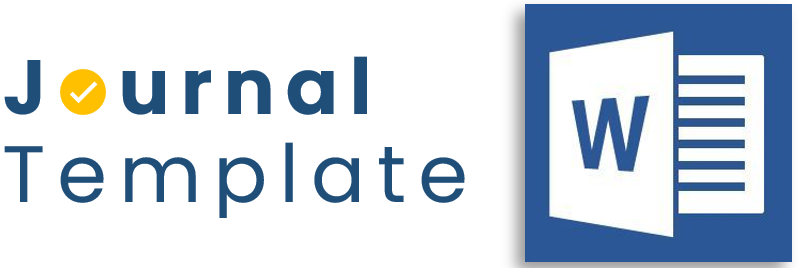Level of Satisfaction with Activities Sharing Session
DOI:
https://doi.org/10.62123/aqila.v1i1.22Keywords:
Knowledge Management, People Development Strategy, Sharing Session, Decision MakingAbstract
Human resource strategy development (people development) is a critical aspect in the growth and success of an organization, especially in the field of IT consulting to foster talent, encourage innovation, and improve overall organizational performance. Sharing session, as a form of interactive learning, offers a platform for employees to exchange ideas, best practices, and lessons learned, facilitating the development of a knowledgeable and adaptable workforce. Sharing sessions helping companies create an environment where knowledge can be shared, accessed, and used effectively by all members of the organization is the goal of knowledge management itself. This research was conducted using qualitative methods through a survey of employees, especially for the IT consulting industry to see the effect of sharing sessions in decision making which is then validated through a survey of top management to see satisfaction with the accuracy of employees in making decisions
References
S. Tjai and S. Sunaryo, Human Resource Development. Yogyakarta: CAPS (Center for Academic Publishing Service), 2018.
A. Salim and A. Harsono, Human Resource Development: Strategic Approach and Its Implementation. Jakarta: Rajawali Press, 2019.
B. A. S. Niazi, “Training and Development Strategy and Its Role in Organizational Performance,” J. Public Adm. Gov., vol. 1, no. 2, p. 42, 2011, doi: 10.5296/jpag.v1i2.862.
K. M. Y. Law and C. R. Cao, “Factors in Organizational Learning BT - Project Action Learning (PAL) Guidebook: Practical Learning in Organizations,” K. M. Y. Law and K. B. Chuah, Eds. Cham: Springer International Publishing, 2020, pp. 25–34.
K. Dalkir, Knowledge Management in Theory and Practice. London: Routledge, 2013.
A. Mardani, S. Nikoosokhan, M. Moradi, and M. Doustar, “The Relationship Between Knowledge Management and Innovation Performance,” J. High Technol. Manag. Res., vol. 29, no. 1, pp. 12–26, 2018, doi: https://doi.org/10.1016/j.hitech.2018.04.002.
M. F. Safitra, D. P. Putri, F. S. Lubis, M. Lubis, H. Fakhrurroja, and R. R. Saedudin, “Leveraging Digital Intelligence for Network Economy and Knowledge Management in Tecnology-Focused Firms,” in Proceedings of the 2023 9th International Conference on Industrial and Business Engineering, Sep. 2023, pp. 347–353, doi: 10.1145/3629378.3629463.
S. Biswas, “Role of strategic human resource management in employee development,” IUP J. Manag. Res., vol. 17, no. 1, pp. 37–52.
J. Bersin, D. Mallon, and S. Boulton, High-Impact People Development: Using Science to Drive Sustainable Business Results. Bersin: Deloitte Consulting LLP, 2020.
Rizki Amalia, “Pengaruh Dukungan Top Management Dan Kemampuan Tehnik Personal Sistem Informasi Akuntansi (SIS) Terhadap Kepuasan Pengguna Sistem Informasi Akuntansi (SIS) Pada Bank Syariah Indonesia (BSI) Cabang Palu,” J. Sinar Manaj., vol. 9, no. 1, pp. 55–65, Mar. 2022, doi: 10.56338/jsm.v9i1.2326.
A. D. Putri, M. Lubis, and A. H. Azizah, “Analysis of Critical Success Factors (CSF) in Enterprise Resource Planning (ERP) Implementation using Extended Technology Acceptance Model (TAM) at Trading and Distribution Company,” in 2020 4rd International Conference on Electrical, Telecommunication and Computer Engineering (ELTICOM), 2020, pp. 129–135, doi: 10.1109/ELTICOM50775.2020.9230527.
R. Noe, J. Hollenbeck, B. Gerhart, and P. Wright, Human Resource Management: Gaining a Competitive Advantage, 13th ed. McGraw Hill, 2022.
M. Lubis, A. Ridho Lubis, and A. Almaarif, “Comparison of the Approach in the Zakat Management System,” J. Phys. Conf. Ser., vol. 1235, no. 1, 2019, doi: 10.1088/1742-6596/1235/1/012048.
S. J. Prasetyo, M. Lubis, R. W. Witjaksono, and A. H. Azizah, “Critical Failure Factors in Enterprise Resource Planning (ERP) Implementation: Case Study of PT.Toyota Astra Motor Indonesia,” Proc. 2019 4th Int. Conf. Informatics Comput. ICIC 2019, 2019, doi: 10.1109/ICIC47613.2019.8985720.
L. Hakim, T. F. Kusumasari, and M. Lubis, “Text Mining of UU-ITE Implementation in Indonesia,” J. Phys. Conf. Ser., vol. 1007, no. 1, 2018, doi: 10.1088/1742-6596/1007/1/012038.
E. Rosmaini, T. F. Kusumasari, M. Lubis, and A. R. Lubis, “Insights to develop privacy policy for organization in Indonesia,” in Journal of Physics: Conference Series, 2018, vol. 978, no. 1, doi: 10.1088/1742-6596/978/1/012042.
M. Lubis, R. Cherthio Annisyah, and L. Lyvia Winiyanti, “ITSM Analysis using ITIL V3 in Service Operation in PT.Inovasi Tjaraka Buana,” IOP Conf. Ser. Mater. Sci. Eng., vol. 847, no. 1, p. 012077, Apr. 2020, doi: 10.1088/1757-899X/847/1/012077.
L. Syafiraliany, M. Lubis, and R. W. Witjaksono, “Analysis of Critical Success Factors from ERP System Implementation in Pharmaceutical Fields by Information System Success Model,” in 2019 Fourth International Conference on Informatics and Computing (ICIC), 2019, pp. 1–5, doi: 10.1109/ICIC47613.2019.8985678.
Y. Prasetyo and M. Lubis, “Smart City Architecture Development Methodology (SCADM): A Meta-Analysis Using SOA-EA and SoS Approach,” SAGE Open, vol. 10, p. 215824402091952, May 2020, doi: 10.1177/2158244020919528.
Julham, H. A. Adam, A. R. Lubis, and M. Lubis, “Development of soil moisture measurement with wireless sensor web-based concept,” Indones. J. Electr. Eng. Comput. Sci., vol. 13, no. 2, 2019, doi: 10.11591/ijeecs.v13.i2.pp514-520.
M. Doly, N. Al-Khowarizmi, R. F. Rahmat, A. R. Lubis, and M. Lubis, “The Role of Faster R-CNN Algorithm in the Internet of Things to Detect Mask Wearing: The Endemic Preparations,” Int. J. Electron. Telecommun., vol. 69, no. 4, pp. 691–696, 2023, doi: 10.24425/ijet.2023.147689.
Downloads
Published
How to Cite
Issue
Section
License
Copyright (c) 2024 Aulia Ferina Sendhitasari, Fairuz Zahirah Lidanta, Syifa Aria Salsabila, Rizki Sadewa, Hanif Fakhrurroja

This work is licensed under a Creative Commons Attribution-ShareAlike 4.0 International License.








